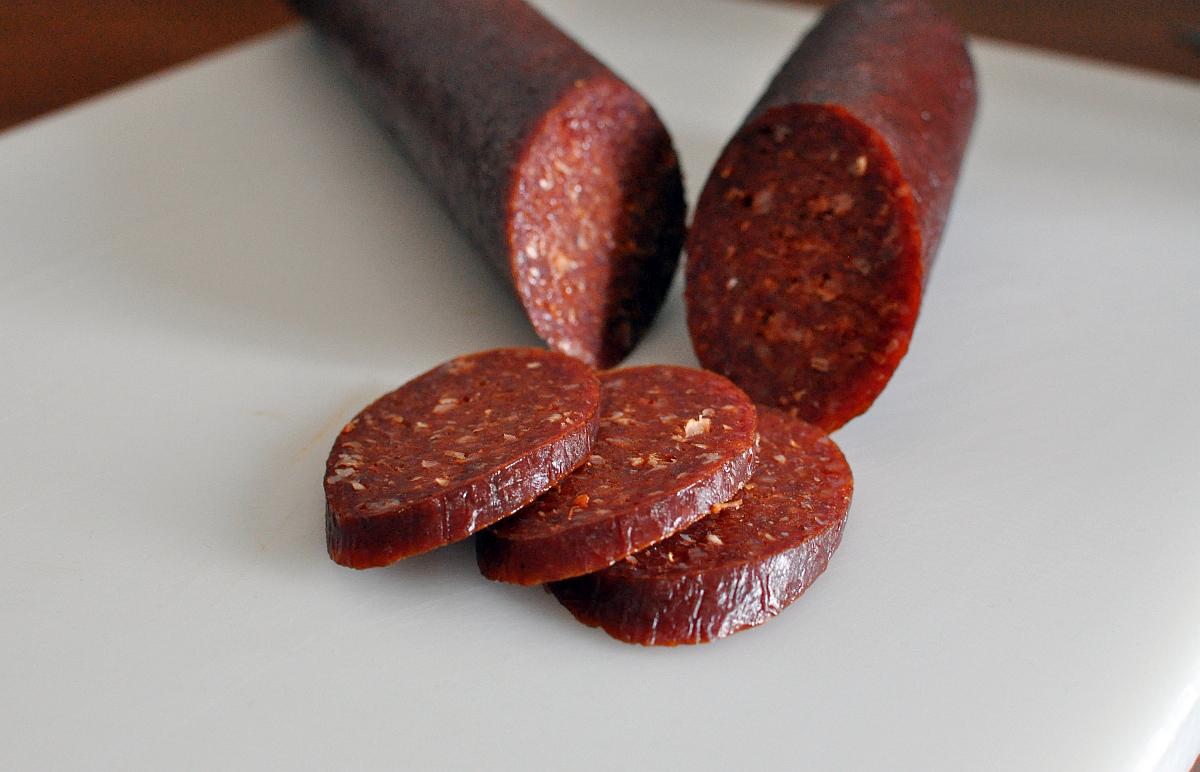
Slovenia and Croatia continue showing muscles to each other. The argument arising from the border dispute and dispute over former NLB savers has spread to food and beverages. At the European level food can be protected only by assigning to it geographic origin, or geographic designation.
Recently Slovenia obtained a geographic protection for Teran from the Karst. Croatian Istria was a bit late in realizing that the protection of Teran will prevent them from marketing their Teran from Istria on EU markets with that name, and now they are lobbying intensively in Brussels, with the purpose of convincing the European officials to undo the protection of the name 'Teran'.
Croatia paid Slovenia back – they objected to protection given to Kranjska klobasa (Carniolan sausage). In the end they managed to force a compromise – a 15-year transition period during which they will be allowed to use the name 'kranjska klobasa', or "kranjska kobasica", for their saussage.
Carniolan sausage to be followed by Slavonian Kulen
A new chapter in neighbourly relations at protection of foodstuff deals with Slavonian kulen. In March 2014 Croatia filed a request for protection of Kulen at the initiative of the Slavonski domaći kulen/kulin (i.e. Slavonian home-made Kulen) Association, which annually produces approximately 100 tons of that Slavonian meat specialty. Yet the Slovenian meat processing industry disapproves.
"The request for objection was given by Economic Interest Grouping (GIZ) of meat industry of Slovenia, on the grounds that a product under the name of "slavonski kulen" is being produced in Slovenia as well. GIZ objection is based on the fact that Slavonian Kulen is being produced in Slovenia for more than 25 years. Thus the approval of the Croatian request for registration of the name "slavonski kulen" would cause to Slovenian producer major economic loss due to prohibition to use the name "slavonski kulen", and consequent withdrawal of the product which is recognized and established on the European and third countries markets," representatives of the Ministry of Agriculture explain.
The Slavonian Kulen made in Slovenia is, according to the Ministry of Agriculture, being marketed on several foreign markets, i.e. in Croatia, Serbia, Germany, Austria, and Bosnia and Herzegovina. The share of Kulen made in Slovenia and sold at the Croatian market according to their data is between 50 and 60 percent.
Problems with cabbage as well
Within two months Slovenia must send additional arguments for the objection to the European commission. Yet the dispute about food between Slovenia and Croatia is not limited to Kulen. The countries are in dispute over Varaždin cabbage. The European Commission has already called upon Slovenia and Croatia to reach an agreement within a period of three months. The only shining example thus remains prosciutto from Istria, i.e. istrski pršut, where both countries agreed to a »cross-border protection«.
Gregor Cerar
Translated by G. K.

































































